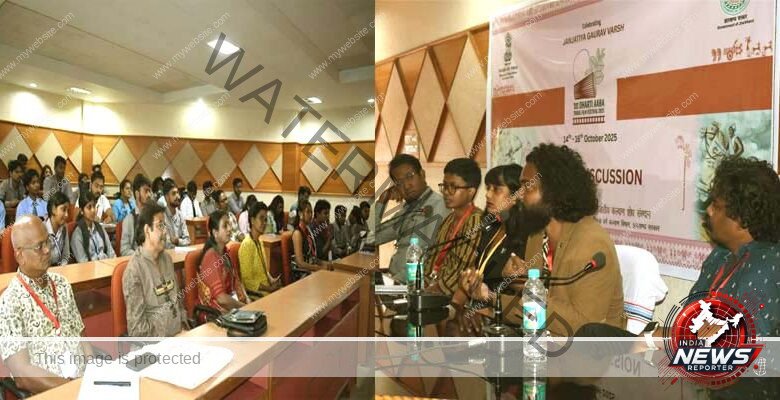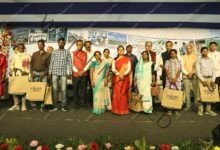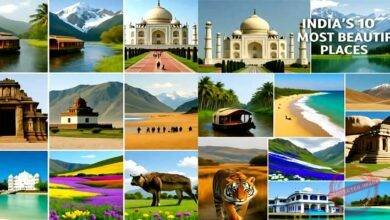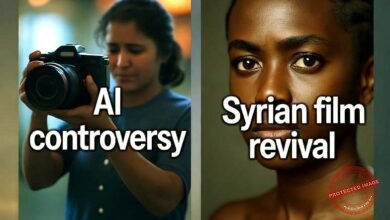Dharti Aaba Tribal Film Festival 2025: A Resounding Celebration of Indigenous Cinema

Ranchi, October 17, 2025 (India News Reporter). The inaugural Dharti Aaba Tribal Film Festival (DAFF 2025), a landmark event for indigenous cinema in India, concluded on October 16th at the Dr. Ram Dayal Munda Tribal Welfare Research Institute in Morabadi, Ranchi. Held from October 14th to 16th, the three-day festival, jointly organized by the Ministry of Tribal Affairs and the Government of Jharkhand, showcased 52 films celebrating tribal life, identity, and social change. The event emerged as a vibrant platform for cultural expression, critical discourse, and artistic innovation, amplifying indigenous voices on a national and global stage.
A Historic Inauguration
The festival was inaugurated by Welfare Minister Shri Chamra Linda, who emphasized cinema’s unparalleled ability to preserve and promote tribal lifestyles, art, and culture. His address set the tone for the event, highlighting its significance as a medium to bridge cultural gaps and foster understanding of indigenous narratives. The Dr. Ram Dayal Munda Tribal Welfare Research Institute (TRI) demonstrated its organizational prowess, successfully hosting an event of national scope that resonated with filmmakers, audiences, and cultural enthusiasts alike.
Day 2: A Celebration of Regional Narratives
The festival’s second day, October 15th, was a highlight, with a packed auditorium for the screening of the Nagpuri feature Celestina & Lawrence. The film’s director, Vikram Kumar, engaged in a lively interactive session, reflecting the audience’s deep connection to regional storytelling. The day also featured a thought-provoking panel discussion titled “Adivasi Cinema in Focus: The Art of Structural Learning and Unlearning,” moderated by Sneha Mundari. Panelists, filmmakers Shyama Karmakar and Krishna Soren, offered insights into the challenges and opportunities in Adivasi cinema. Soren emphasized the importance of technical expertise, while Karmakar highlighted the need for script flexibility. Both agreed that while artificial intelligence can serve as a tool, it cannot replace human creativity.
The panel identified three primary obstacles to the growth of cinema in Jharkhand:
Language Barrier: Limited accessibility of tribal languages in mainstream cinema.
Historical Underrepresentation: A lack of Adivasi representation in lead roles.
Audience Outreach: Challenges in effectively reaching and engaging diverse audiences.
Final Day: Preserving Cultural Archives
The festival’s final day reinforced its cultural mandate, with discussions centered on Adivasi cinema as a vessel for preserving traditional languages, folklore, and ways of life while countering misrepresentation. Director Umul Juno Soren discussed his film Sakam Orec (Divorce), joined by actor and jury member Mahadeo Toppo, who starred in the screened film Jadugoda. Seminars underscored the role of cinema in safeguarding cultural archives and amplifying indigenous narratives in a rapidly modernizing world.
Closing Ceremony: A Vision for the Future
The closing ceremony was a heartfelt celebration, with Welfare Minister Shri Chamra Linda delivering a passionate Vote of Thanks alongside former IAS officer Ranendra Kumar, Deputy Director Ms. Monica Rani Tuti, and filmmaker Meghnath. Minister Linda encapsulated the festival’s essence, stating, “This event is an inspiration from filmmakers to learn how creative they are, and also that cinema is the only way to know about the tribal culture to the world.” His words underscored the festival’s mission to elevate tribal stories to a global audience.
Awards: Honoring Excellence in Indigenous Cinema
DAFF 2025 concluded with a prestigious awards ceremony, recognizing outstanding contributions across various categories:
Feature Film Awards
1st Prize: Yeksik’s Daughter – ₹1,00,000, celebrated for its portrayal of resilience and authentic cultural reflection.
2nd Prize: Celestina & Lawrence – ₹60,000, lauded for its compelling regional narrative.
3rd Prize: Sakam Orec (Divorce) – ₹40,000, recognized for its exploration of identity and social dynamics.
Short Film Awards
1st Prize: Cross Road – ₹50,000, a tale of innocence and moral reflection.
2nd Prize: Puisa Dare – ₹30,000, honored for its focus on community growth.
3rd Prize: Papaya – ₹20,000, celebrated for its simplicity and emotional depth.
Long Documentary Awards
1st Prize: Bonded – ₹80,000, recognized for its powerful social commentary.
2nd Prize: The Bird, the Priest – ₹50,000, lauded for its exploration of tribal economy.
Special Mention: 16 Millet Thieves, noted for its insightful narrative.
Short Documentary Awards
1st Prize: Rukhu Matir Dukhu Majhi (Son of the Barren Land) – ₹50,000, honored for its inspiring grassroots narrative.
2nd Prize: Jameen ma ka Phool – ₹30,000, celebrated for its cultural depth.
3rd Prize: Man, Melody, and Dolls – ₹20,000, recognized for its unique storytelling.
Special Jury Mentions: Invisible (Feature) and Ngul Ge Seb (Short Documentary), Aleyya Hassan Aleya Haq, acknowledged for their visionary storytelling, human-animal bonds, and conservation themes.
A Legacy in the Making
The resounding success of DAFF 2025 has firmly established it as an indispensable annual fixture in India’s cultural calendar. By providing a platform for indigenous filmmakers to share their stories, the festival has positioned Jharkhand’s tribal cinema as a vital force in national and global cinema. With its focus on cultural preservation, artistic innovation, and social change, DAFF 2025 has set a high standard for future editions, promising to continue amplifying indigenous voices on a global stage.










